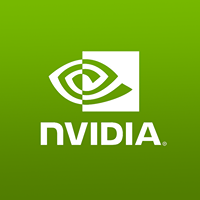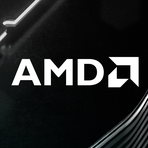Qualcomm's Bold Move into the Data Center Arena
May 20, 2025, 3:39 pm
Qualcomm is making waves. The tech giant is set to launch custom central processing units (CPUs) designed specifically for data centers. This is a significant pivot for a company that has long been synonymous with mobile processors. The new CPUs will connect seamlessly with Nvidia's powerful graphics processing units (GPUs), a crucial step in the race to dominate the artificial intelligence (AI) landscape.
Qualcomm's foray into the data center market is not just a strategic decision; it's a necessity. The tech world is evolving rapidly. Companies are increasingly reliant on AI, and Nvidia's chips have become the gold standard for powering these applications. For Qualcomm, linking its CPUs to Nvidia's infrastructure is akin to finding the right key for a locked door. Without this connection, entering the data center market would be like trying to swim upstream.
This move marks Qualcomm's re-entry into a space it previously struggled to penetrate. Years ago, its attempts to break into the data center market were met with limited success. However, the landscape has changed. The demand for AI capabilities is skyrocketing, and Qualcomm is determined to carve out its niche. The acquisition of Nuvia in 2021, a company specializing in Arm-based processors, has laid the groundwork for this ambitious venture.
Qualcomm's CEO, Cristiano Amon, is optimistic. He believes that the data center market is ripe for growth. The potential is vast, and Qualcomm's technology could add significant value. The competition is fierce, with giants like Intel and AMD already entrenched in the CPU market. However, Amon asserts that there is room for innovation. If Qualcomm can deliver a disruptive product, it can find its place in this lucrative arena.
The data center CPU market is not just about hardware; it's about creating an ecosystem. Nvidia's GPUs are essential for training massive AI models. These models power everything from chatbots to advanced analytics. By integrating its CPUs with Nvidia's GPUs, Qualcomm is positioning itself as a key player in this ecosystem. It's a strategic alliance that could redefine the way data centers operate.
Qualcomm's ambitions extend beyond just CPUs. The company is diversifying its portfolio. Traditionally, Qualcomm has relied heavily on smartphone processors and modems. However, as competitors like Apple begin to design their own chips, Qualcomm recognizes the need to adapt. The data center market represents a new frontier, one that could provide stability and growth in an increasingly competitive landscape.
The recent memorandum of understanding with Saudi-based AI firm Humain is a testament to Qualcomm's commitment. This partnership aims to develop data centers in the region, further solidifying Qualcomm's presence in the global tech landscape. As U.S. tech companies flock to Saudi Arabia, Qualcomm is positioning itself as a leader in AI infrastructure.
Analysts are optimistic about Qualcomm's entry into the data center space. The International Data Corporation's Mario Morales notes that the data center segment is poised for rapid growth. Over the next five years, it is expected to be the fastest-growing segment in the semiconductor market. Qualcomm's late entry may have its advantages. The company can learn from the successes and failures of its predecessors, allowing it to refine its approach.
Amon's vision extends beyond CPUs. Qualcomm is also making strides in other markets, including automotive and personal computing. The Snapdragon X Series chips are already making waves in the PC sector, with over 85 designs in development. This diversification strategy is essential for Qualcomm's long-term success. It allows the company to hedge its bets and explore new revenue streams.
As Qualcomm prepares to unveil its CPU roadmap, the anticipation is palpable. The tech community is eager to see what innovations the company will bring to the table. Amon has hinted at a disruptive technology that could change the game. The promise of power-efficient chips capable of running AI processes on-device is enticing. This approach could lead to faster applications and enhanced security, as data remains on the hardware rather than being sent to the cloud.
In conclusion, Qualcomm's entry into the data center market is a bold and necessary move. The company is leveraging its strengths while adapting to a rapidly changing landscape. By connecting its CPUs to Nvidia's GPUs, Qualcomm is positioning itself as a key player in the AI revolution. The road ahead may be challenging, but with a clear vision and innovative technology, Qualcomm is poised to make a significant impact. The data center is the new frontier, and Qualcomm is ready to stake its claim.
Qualcomm's foray into the data center market is not just a strategic decision; it's a necessity. The tech world is evolving rapidly. Companies are increasingly reliant on AI, and Nvidia's chips have become the gold standard for powering these applications. For Qualcomm, linking its CPUs to Nvidia's infrastructure is akin to finding the right key for a locked door. Without this connection, entering the data center market would be like trying to swim upstream.
This move marks Qualcomm's re-entry into a space it previously struggled to penetrate. Years ago, its attempts to break into the data center market were met with limited success. However, the landscape has changed. The demand for AI capabilities is skyrocketing, and Qualcomm is determined to carve out its niche. The acquisition of Nuvia in 2021, a company specializing in Arm-based processors, has laid the groundwork for this ambitious venture.
Qualcomm's CEO, Cristiano Amon, is optimistic. He believes that the data center market is ripe for growth. The potential is vast, and Qualcomm's technology could add significant value. The competition is fierce, with giants like Intel and AMD already entrenched in the CPU market. However, Amon asserts that there is room for innovation. If Qualcomm can deliver a disruptive product, it can find its place in this lucrative arena.
The data center CPU market is not just about hardware; it's about creating an ecosystem. Nvidia's GPUs are essential for training massive AI models. These models power everything from chatbots to advanced analytics. By integrating its CPUs with Nvidia's GPUs, Qualcomm is positioning itself as a key player in this ecosystem. It's a strategic alliance that could redefine the way data centers operate.
Qualcomm's ambitions extend beyond just CPUs. The company is diversifying its portfolio. Traditionally, Qualcomm has relied heavily on smartphone processors and modems. However, as competitors like Apple begin to design their own chips, Qualcomm recognizes the need to adapt. The data center market represents a new frontier, one that could provide stability and growth in an increasingly competitive landscape.
The recent memorandum of understanding with Saudi-based AI firm Humain is a testament to Qualcomm's commitment. This partnership aims to develop data centers in the region, further solidifying Qualcomm's presence in the global tech landscape. As U.S. tech companies flock to Saudi Arabia, Qualcomm is positioning itself as a leader in AI infrastructure.
Analysts are optimistic about Qualcomm's entry into the data center space. The International Data Corporation's Mario Morales notes that the data center segment is poised for rapid growth. Over the next five years, it is expected to be the fastest-growing segment in the semiconductor market. Qualcomm's late entry may have its advantages. The company can learn from the successes and failures of its predecessors, allowing it to refine its approach.
Amon's vision extends beyond CPUs. Qualcomm is also making strides in other markets, including automotive and personal computing. The Snapdragon X Series chips are already making waves in the PC sector, with over 85 designs in development. This diversification strategy is essential for Qualcomm's long-term success. It allows the company to hedge its bets and explore new revenue streams.
As Qualcomm prepares to unveil its CPU roadmap, the anticipation is palpable. The tech community is eager to see what innovations the company will bring to the table. Amon has hinted at a disruptive technology that could change the game. The promise of power-efficient chips capable of running AI processes on-device is enticing. This approach could lead to faster applications and enhanced security, as data remains on the hardware rather than being sent to the cloud.
In conclusion, Qualcomm's entry into the data center market is a bold and necessary move. The company is leveraging its strengths while adapting to a rapidly changing landscape. By connecting its CPUs to Nvidia's GPUs, Qualcomm is positioning itself as a key player in the AI revolution. The road ahead may be challenging, but with a clear vision and innovative technology, Qualcomm is poised to make a significant impact. The data center is the new frontier, and Qualcomm is ready to stake its claim.


